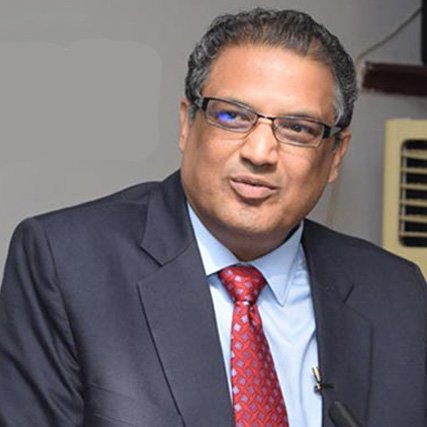From the 1977 National Alliance Movement to the 2024 elections, the majority of traders and industrialists have, in one way or another, remained connected with the PML-N and its right-wing allies. Many elections came, and two dictators also came to power, but traders could not break their ties with Nawaz Sharif. The PPP never managed to gain significant support from traders and industrialists. Since both PTI and PML-N were based on the urban middle class, there was a possibility that some group of traders and industrialists would break away from PML-N and join PTI. It is also possible that some voters and some financial supporters from among traders and industrialists did join PTI, but neither any big name nor any large group broke away from PML-N to join PTI, and neither did any major lobby of traders and industrialists emerge in PTI. At present, the PML-N has, for a long time, been not only cut off from traders and industrialists but also completely disengaged from their internal politics. So now the position is that, apart from Mian Misbahur Rehman and Zaka Ashraf, no major industrialist is openly standing with PPP Punjab. PTI also has no prominent industrialist or trader active in chamber politics, and nor does PML-N have any direct interference in traders’ politics. In other words, now every trader and industrialist may be personally bound in political groupings, but collectively there is no political party interfering in chamber politics. Whereas, at one time, both Shahbaz Sharif himself and Finance Minister Ishaq Dar had held the presidency of Lahore Chamber, and at one time, Lahore Chamber of Commerce used to be the very stronghold of PML-N’s politics and influence — but now, nothing of the sort exists.
In the 2024 elections, a group of Punjabi industrialists had given PML-N funding worth one billion rupees, but they could not gain influence or reception in PML-N. For the past few years, two alternative groups of industrialists and traders have emerged. One is led by S. M. Tanveer, whose father, S. M. Muneer, was an old figure in traders’ politics — he used to get PML-N, PPP, and the military to talk for the interests of traders. S. M. Tanveer was a provincial minister in Mohsin Naqvi’s caretaker cabinet. Patron-in-chief of APTMA, Gohar Ejaz, is his in-law. This is a powerful business lobby; apart from the Lahore Chamber, the majority of elected chambers across the country belong to their group. Their rival group defeated them in the Lahore Chamber, but overall leadership is still in their hands. This group currently has good relations with PML-N as well as ongoing — not occasional — contact with Field Marshal Asim Munir.
Recently, the Shahbaz government increased the powers of the FBR. A law was passed allowing notices and arrests of those who default on taxes. In such a situation, elected representatives of 18 chambers of commerce, accompanied by Interior Minister Mohsin Naqvi and former Commerce Minister Gohar Ejaz, met Field Marshal Asim Munir and presented the stance that the FBR has not only insulted this country’s traders and industrialists by openly calling them thieves but now, by making arrests, they want to ruin the country’s economy. On the other hand, FBR Chairman Rashid Langrial and his fellow bureaucrats thought that if arrests happen, everyone will pay taxes — that until traders and industrialists pay full tax, this country cannot run. This FBR decision had the full support of the federal government and the Prime Minister’s kitchen cabinet. Traders assured General Asim Munir that they were ready to pay double the tax but were not ready for humiliation through police raids and arrests.
In the end, in the war between FBR and traders, the traders won and the FBR lost. The federal government had to retreat and change the law. Now the traders’ representative group will have the authority to decide whether to make an arrest or not. FBR officers will not be allowed to act arbitrarily. FBR Chairman Rashid Langrial is currently on leave; when he returns to duty after recovering from surgery, it will be known what his reaction will be.
Pakistani industrialists and traders, through their joint strategy, have defeated the federal government. Pakistani traders are different from Iranian traders — the bazari — in that they neither openly engage in politics nor enter politics. However, when it comes to taxes or any collective traders’ issue, they unite and enforce a shutter-down strike, forcing governments to change decisions. This time, even that stage did not come — after the meeting with the Field Marshal, the traders got their issue resolved.
The question arises: what difference will this traders’ victory make to the future political landscape? Traditionally, Pakistani traders and industrialists have been allies of the right-wing and the military. The collective psychology of traders is not to clash with governments but to go along with them. For the past 47 years, from 1977 to 2024, the majority of traders and industrialists have supported PML-N’s politics. Even during General Musharraf’s era, when PML-N and the military were at odds, the majority of traders did not change their loyalty. But now it seems that PML-N’s complete indifference toward traders and industrialists is leaving its mark — the top leadership’s contact with the leadership of traders and industrialists has been severed. Traders and industrialists have been PML-N’s political asset. If this neglect continues, this so-called bond tied by a fragile thread will also break someday. This relationship, after passing through decades of experiences, is now about to show a new effect. The traders’ victory happened due to the establishment, not politics — in fact, they had a complaint about politics, and it was the establishment that redressed it, taking an influential group into its fold.
 Colors
Colors  View Books
View Books 



